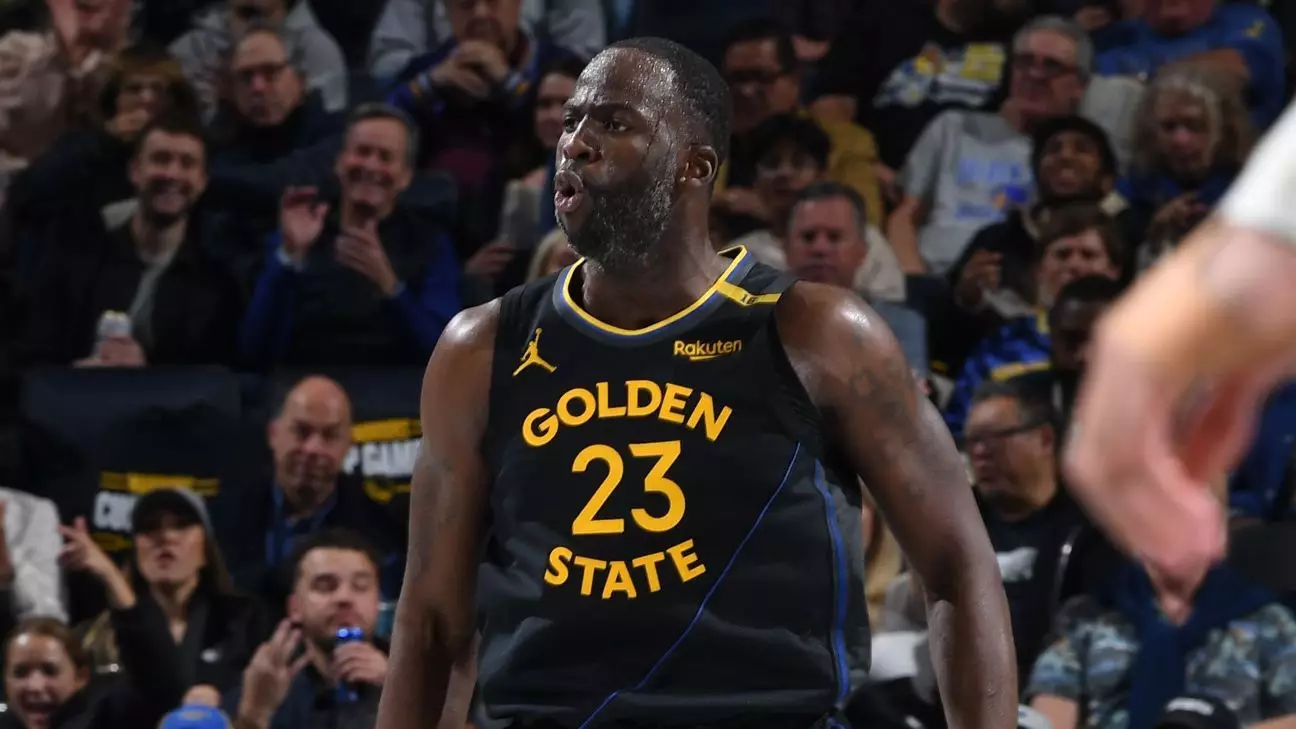Draymond Green, a name synonymous with intensity and passion in the NBA, faced a significant personal and professional crisis two years ago when he punched his then-teammate, Jordan Poole, during a practice session. This incident not only stirred controversy but also highlighted deeper issues within the Golden State Warriors’ locker room. Recently, Green has taken steps to address his past actions, emphasizing the importance of accountability and personal growth.
Reflections on the Past
In a candid moment during a podcast appearance, Green acknowledged the turmoil that followed his actions, particularly in light of Poole’s recent comments about their shared history. When Poole returned to the Warriors’ home court with the Washington Wizards, he expressed fondness for many of his former teammates, a sentiment that Green interpreted as stirring unnecessary reminders of their tumultuous encounter. The punch itself was a stark and uncharacteristic moment in Green’s career—a misstep that was recorded and widely viewed, forever marking the start of a new chapter for both players.
Green expressed regret over the incident, stating, “I really am sorry.” His remarks come as a recognition of the lasting impact that their falling out had on team dynamics. While acknowledging that his reaction was flawed, he also pointed out the provocation that preceded it, indicating that such altercations often have layers that are not simply black and white.
The fallout from the punch was extensive. Following the incident, Green publicly apologized and took responsibility, but he also faced significant consequences, such as a fine from the Warriors. He voluntarily distanced himself from the team momentarily, showcasing a complicated interplay between accountability and the psychological toll of public scrutiny. In sports, where the culture often celebrates toughness and resilience, Green’s experience serves as a crucial reminder of the importance of emotional intelligence and conflict resolution.
In the wake of that altercation, Green found himself reckoning with his actions not just on the court, but also within his mental health framework. He underwent counseling and participated in mandatory check-in sessions, which he has credited with helping him evolve both as a player and an individual. “I took accountability for it, and I moved forward,” Green stated, a testament to his commitment to personal growth and development.
The Warriors organization has always been known for its strong camaraderie and team spirit, elements that were undoubtedly affected by Green’s punch. It was a significant moment that illustrated how fragile team relationships can be under pressure. After the incident, the Warriors had a season filled with challenges, culminating in a disappointing exit from the playoffs. The subsequent trade of Poole for Chris Paul was a clear signal of the organization’s desire to restore harmony while acknowledging that the past could not be undone.
Green’s role in the Warriors reflects a duality; he is both a leader and a figure of controversy. That complexity unfolds in his interactions, both with teammates and opponents. It poses the question of how athletes balance intensity and aggression with the need for accountability and mutual respect.
Evolving Leadership
As the current season unfolds, Green’s performance illustrates his ongoing evolution. Although he has accumulated technical fouls, the reduction in ejections suggests an awareness and restraint that may not have been present before. Acknowledging his shortcomings while striving to become a better player speaks volumes about his character. Green has two therapists and has sought help to navigate the pressures that come with his role.
His journey of self-improvement is emblematic of the challenges that many high-profile athletes face—navigating fame, personal identity, and the expectations of both fans and organizations. Green’s commitment to change serves as inspiration, highlighting that setbacks do not define us, but rather, how we respond to those setbacks speaks volumes about our true character.
Looking Forward
In his most recent podcast, Green reiterated the necessity of moving forward. “Let’s move on,” he said, exuding a sense of hope and perseverance. This sentiment resonates not only within the confines of the Bay Area but also with anyone who has faced their own hurdles and sought redemption. As he recovers from his recent injury, both Green and the Warriors must focus on healing and growth—not just as a team but as individuals who have experienced the highs and lows of professional sports.
The path of accountability is never straightforward, but Draymond Green’s journey proves that understanding one’s own mistakes and striving to improve can lead to a stronger, healthier perspective on both life and sport. In an era where athletes are often scrutinized for their actions, Green’s story serves as an essential reminder that personal growth is an ongoing process, contributing to a richer narrative of perseverance and redemption.

